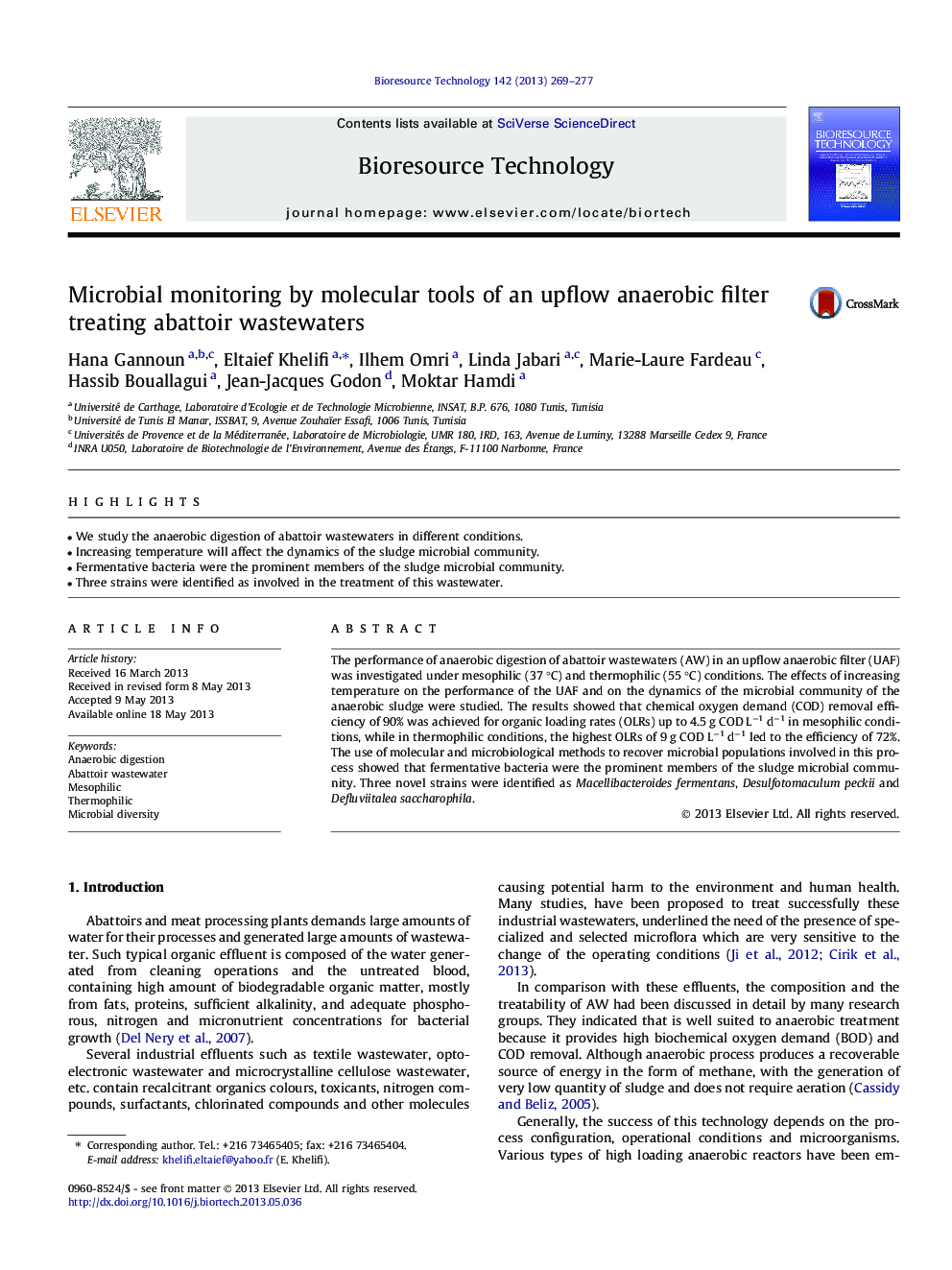| Article ID | Journal | Published Year | Pages | File Type |
|---|---|---|---|---|
| 7081559 | Bioresource Technology | 2013 | 9 Pages |
Abstract
The performance of anaerobic digestion of abattoir wastewaters (AW) in an upflow anaerobic filter (UAF) was investigated under mesophilic (37 °C) and thermophilic (55 °C) conditions. The effects of increasing temperature on the performance of the UAF and on the dynamics of the microbial community of the anaerobic sludge were studied. The results showed that chemical oxygen demand (COD) removal efficiency of 90% was achieved for organic loading rates (OLRs) up to 4.5 g COD Lâ1 dâ1 in mesophilic conditions, while in thermophilic conditions, the highest OLRs of 9 g COD Lâ1 dâ1 led to the efficiency of 72%. The use of molecular and microbiological methods to recover microbial populations involved in this process showed that fermentative bacteria were the prominent members of the sludge microbial community. Three novel strains were identified as Macellibacteroides fermentans, Desulfotomaculum peckii and Defluviitalea saccharophila.
Related Topics
Physical Sciences and Engineering
Chemical Engineering
Process Chemistry and Technology
Authors
Hana Gannoun, Eltaief Khelifi, Ilhem Omri, Linda Jabari, Marie-Laure Fardeau, Hassib Bouallagui, Jean-Jacques Godon, Moktar Hamdi,
